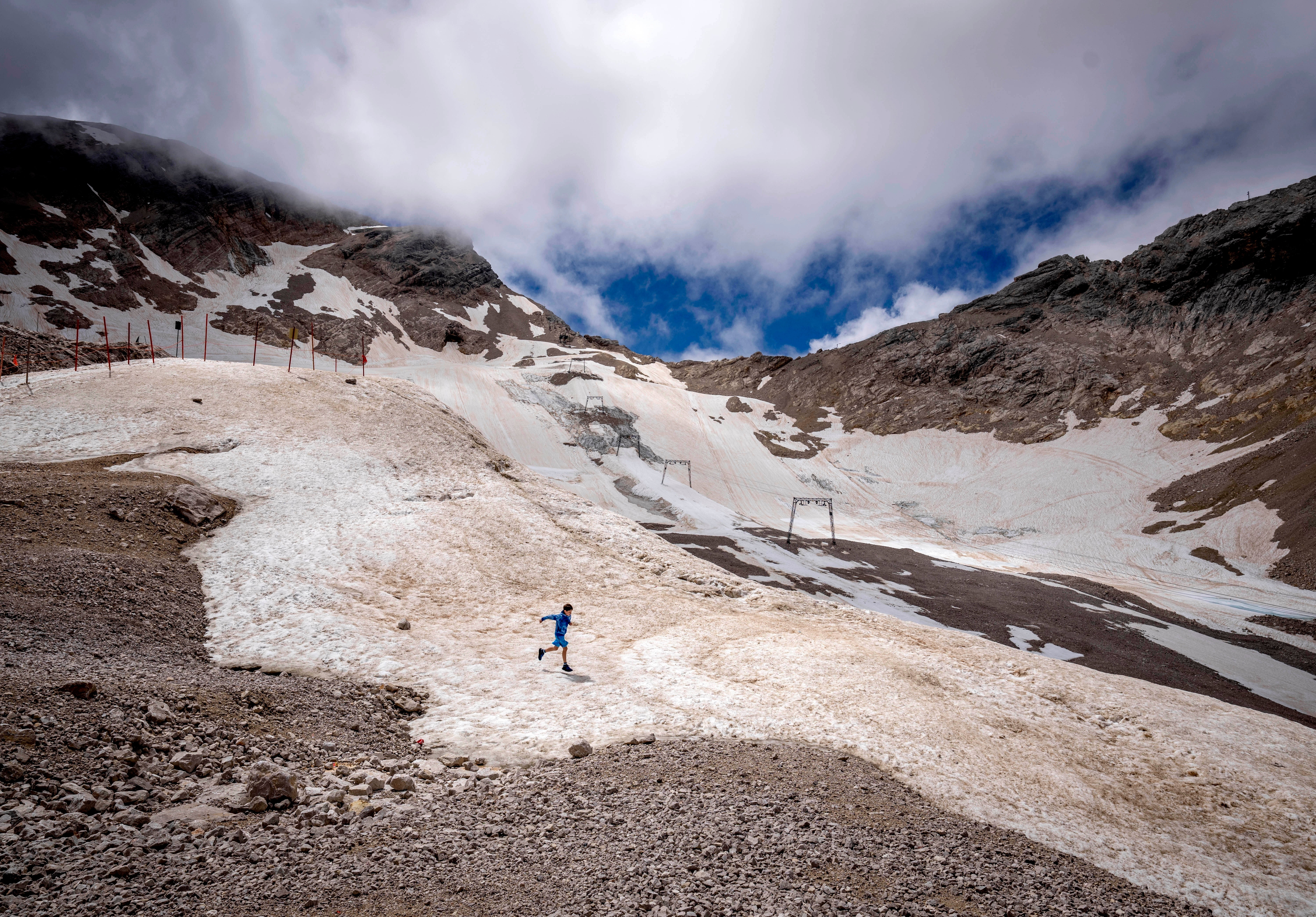Ski slopes in Alps facing snow shortage in unusually warm winter
Skiing at the upcoming World Cup in Switzerland will be performed on artificial snow

Unseasonably warm weather and low snowfall in the Alps has caused a shortage of snow for ski resorts.
The lack of snow has revived concerns about rising temperatures linked to climate change, with patches of grass, rock and dirt visible on Monday in some of Europe’s top skiing destinations in France, Austria and Switzerland.
Recent temperatures in Europe have showed warmer than average conditions. Poland has seen daily highs in the double digits Celsius — or more than 50 Fahrenheit — in recent days.
Across the Atlantic, the United States has faced severe disruption from freezing temperatures and blizzards in parts of the country late last year.

Swiss weather forecaster MeteoSuisse highlighed some of the hottest temperatures ever seen at this time of year.
A weather station in Delemont, on the French border, reached a record average daily temperature of 18.1 degrees Celsius (nearly 65 Fahrenheit) on the first day of the year, over 2-1/2 degrees Celsius higher than the previous record high for January.
Other cities and towns in the region are also following this trend with records highs.
MeteoSuisse added “... this turn of the new year could almost make you forget that it’s the height of winter.”
MeteoSuisse’s Anick Haldimann explained that a persistent weather system has brought in warmer air from the west and southwest which has lingered, locking in warmer temperatures expected to last through the week.
While ski slopes above 2,000 meters (over 6,500 feet) have gotten snow, lower down, “the order of the day is patience” for skiing buffs, she said.
Switzerland is set to host World Cup skiing on Saturday, which typically hosts 25,000 fans for a single day of racing. However, course director Toni Hadi has acknowledged that the contest will be run on 100% artificial snow this year.
“The climate is a bit changing but what should we do here? Shall we stop with life?” he told AP reporters, noting that other challenges such as the coronavirus pandemic and war show “life is not easy” these days.
“Everything is difficult - not only to prepare a ski slope,” Hadi said.
The start to 2023 picked up where many ski destination countries had left off, with last year officially the hottest on record in both Switzerland and France.
Germany too has seen unusually springlike temperatures — as high as 16 degrees Celsius (61 Fahrenheit) in parts of the country on Monday. New Year’s Eve is believed to have been the warmest since reliable records began.
Globally, the United Nations’ World Meteorological Organization says the past eight years are on track to be the eight warmest on record.
Despite early signs of good snow coverage in the region, recent weather fronts have melted hopes of a consistent season, though some of the best snowfall has been reported in the Italian Dolomites, to the south of the Swiss Alps.

Wim Thiery, a professor of climate science at the University of Brussels, said the same jet stream that brings cold air from the Arctic into the U.S. has fanned warm air from subtropical zones into Europe. He warned that climate change hasn’t finished its work affecting in the region.
Professor Thiery told AP reporters “By the end of the century [it’s] just going to be over ... skiing in the Alps as we know it,”
“In the future, these problems will get worse, because the snow will continue to melt as long as the climate warms.”








Join our commenting forum
Join thought-provoking conversations, follow other Independent readers and see their replies
Comments